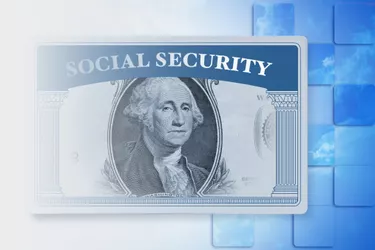
Employers and their employees share responsibility for Social Security taxes. Employers must withhold Social Security taxes from their employees' paychecks and forward that money to the government. Employers also pay a share of Social Security taxes themselves.
If your employer isn't paying your Social Security taxes, it could be because you're not actually an employee but an independent contractor – or it could be because your employer is breaking the law. Either way, unpaid Social Security is taken extremely seriously by the government.
Video of the Day
Video of the Day
Consider Also: Form 1040: What You Need to Know
SS Taxes and Independent Contractors
Employers must pay Social Security taxes for employees, but not for independent contractors. Independent contractors are self-employed and responsible for their own Social Security taxes. It could be that you misunderstood your working relationship. That said, you're not an independent contractor just because your boss says you are.
The Internal Revenue Service looks at several factors to determine status as an employee or contractor. Key considerations include how much control the employer exercises over where, when and how you work, whether you work at the employer's place of business and who supplies equipment and materials used to do your job. If necessary, you can get a ruling from the IRS on your status by filing Form SS-8.
If it turns out you're a contractor, then you must pay your own Social Security taxes. If you're sure you're an employee, and your employer isn't paying your Social Security taxes, then your employer is breaking the law.
If your employer has been withholding the taxes from your pay but not forwarding them to the government - called "paying over" - then you are not liable for the unpaid taxes as long as you can document the withholding with check stubs or some other evidence. If the employer didn't even withhold the taxes, you may be liable for paying them.
The tax code places responsibility on taxpayers to know their own obligations.
The tax code has separate penalties for an employer's failure to pay Social Security taxes, depending whether the taxes in question are the employer's portion or the employee's portion. When it's the employer's portion, the employer can be charged a penalty of up to 5 percent of the unpaid amount for every month it goes unpaid, up to 25 percent of the tax due. On top of that, the IRS charges interest on unpaid taxes.
If your employer fails to collect or pay over the employee's share of Social Security taxes, then it's risking severe penalties. Under the tax code, anyone in the company who is responsible for the non-payment is personally liable for the full amount of the tax that should have been withheld. If it's more than one person, each is liable for the full amount, and the IRS can come after each individual's personal assets to pay it. That's how seriously the IRS takes non-payment of withheld taxes.
Consider Also: What Happens if You Don't File Taxes?